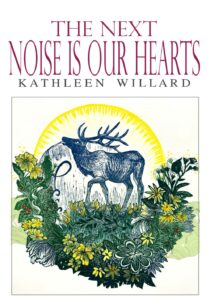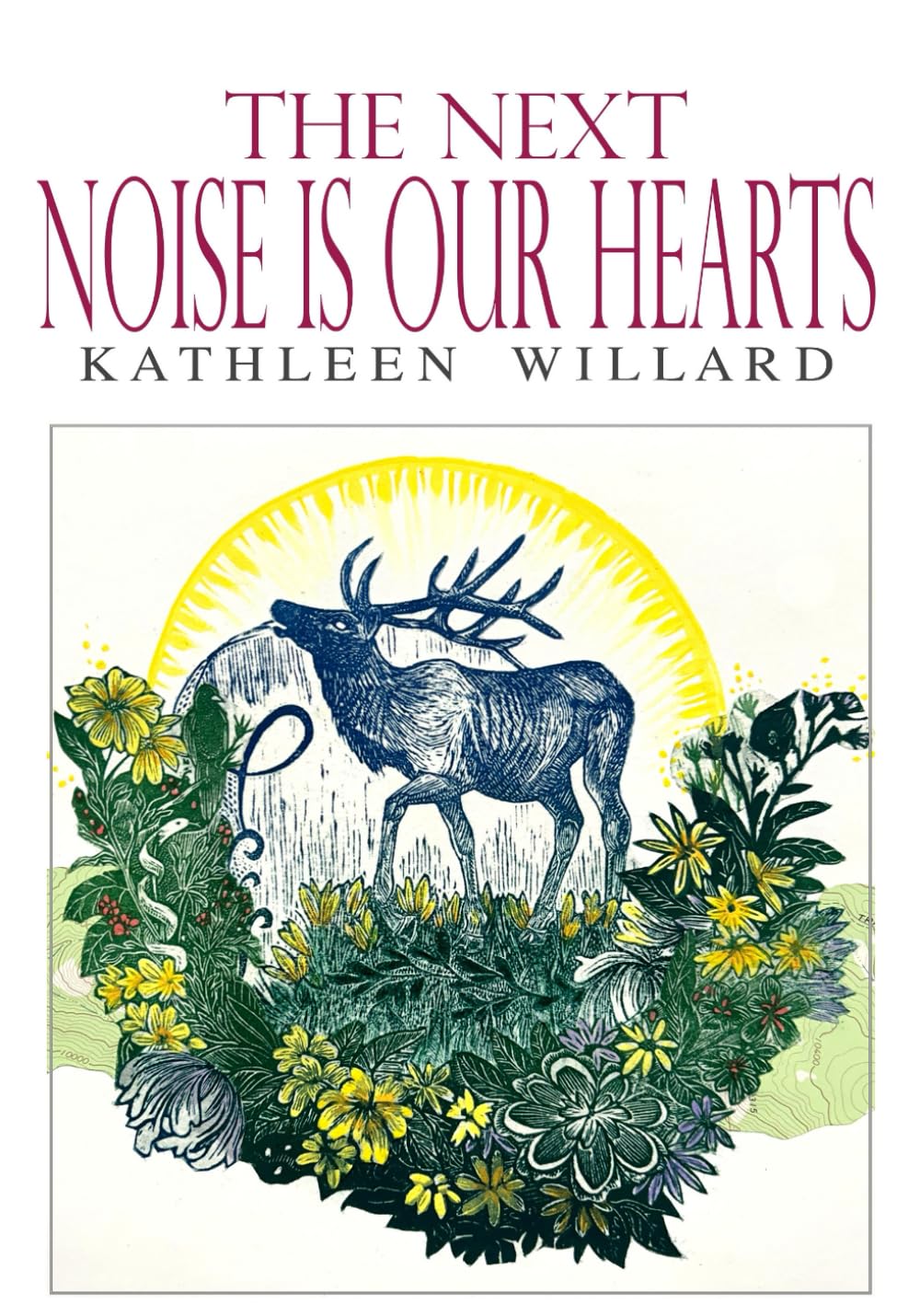Singing to stranded whales
The sound of a tremulous future in Kathleen Willard’s newest collection of poems
The sound of a tremulous future in Kathleen Willard’s newest collection of poems
Kathleen Willard, a poet from Fort Collins, Colorado, is the author of four collections of poetry, three of which are published by Colorado-based Middle Creek Publishing & Audio. Her poems have been nominated for three Pushcart Prizes and have been praised by some of Colorado’s premier poets. (Willard offers manuscript services for other poets working on their own collections. If you are interested in this opportunity, you can learn about it here.)

Kathleen Willard
One of Willard’s newest books is The Next Noise is Our Hearts. It is a devastating collection of nature and environmental poetry. In it she mourns species we have eradicated from our continents, condemns practices that leave wild spaces forever changed and rages against the powers and people that refuse to acknowledge the looming demise of life on our planet. Yes, this book is full of anger. It is a tapestry of fury and sorrow, helplessness and hopelessness. It is—necessarily—a bleak read.
For me, the most poignant poems in this collection are those that explore environmental concerns through the perspectives of children. In the opening poem, “Utopia,” a speaker describes a precocious young boy who adores the solar system and penguins and bees. In an interaction with the boy, the speaker asks what his favorite planet is:
And he looks at me as if I am imbecile,
as if I wasn’t listening.
Earth, he answers. Stunned.
I don’t have access to this simple fact.
Because we live here.
This is the most affirmative poem in this book. It is a celebration of both childhood wonder and Earth’s wonders. The speaker, who perhaps assumed the boy would care more for planets with rings or multiple moons or some other entirely alien quality, is astounded by the idea that what we already have is the best of the known universe.
In a darker poem, “Dear Lucy—,” the speaker details an outing with a five-year-old girl to a butterfly pavilion. At the start of the poem, Willard uses “you” to make it clear the speaker is talking to the girl. In the last stanza, however, the speaker switches to discussing the girl in third person:
How can I tell her the days of her monarchs and their migrations
are numbered? Their mortality rate accelerating
at breakneck speed and sooner than we think,
she will have to fathom a world
where monarchs no longer visit backyards.
This subtle change in perspective separates the speaker and the girl, creating a distance between them that parallels the distance between innocence and knowledge. The reader understands that someday the girl will close that distance and will walk inevitably from the unknown into  the known. There will be no turning back.
the known. There will be no turning back.
In another poem, “There Was a Stranding,” Willard explores how young adults react to this knowing. Early in the poem, the speaker explains:
Six hundred stranded pilot
whales beach themselves, their sonar off-kilter,
the shoreline shifted,
their mass suicide defies scientific explanation.
At the end of the poem, the speaker describes concerned people traveling to that New Zealand beach, uselessly pouring seawater over the whales’ bodies while they die in the sun. But the speaker also describes:
comfort songs of teenage girls
keening for dying pilot whales. Declare
someone mourns their passing,
and they will not be alone
when they cross their last threshold.
The young, too, understand this profound loss. And perhaps their mourning is for the whales, and for entire ocean ecosystems, and for the health of the planet we rely on, and for their own tremulous futures.
The Next Noise is Our Hearts ends with the poem “Call to Action.” The title is a bit on-the-nose, if you will, but this is the kind of obvious that’s necessary when talking about literal global issues. The poem focuses mostly on people who don’t care about the environment, people who “see the Earth as only a commodity / or embellishment,” and who “failed to hear the bird chorus / each morning outside their windows, or watched the seasonal drama / of maple groves in their cities.” But at the end of the poem, the speaker addresses directly the truth as they know it:
[…] I celebrate, instead,the whole ecosystem from an archipelago of bees to pilot whales,
and the infinity of infinitesimal creatures,
each a hinge that stitches our home together. We are spun
from honey and blue butterflies on the mountains of Spain
and reject the Earth as soon-doomed. Just for the record,
there is an avalanche of data and evidence that cannot be ignored.
There is drought and wildfire. There is flooding and heat stroke deaths.
The planet is heating up and the teenagers are singing songs
to stranded whales.
It is no coincidence that this book ends with an echo of the lost whales, and the songs our young adults sang for them. When it comes to issues of the environment, to our individual and societal connections to nature, to the wonder we once felt and hope to feel again, we must look to our young. They have less experience with hopelessness. They are full of a will to live, and in that way, they are infinitely wiser than their elders.
While Marissa Harwood was born in Omaha, Nebraska, she moved to Colorado when she was four days old and considers herself a native. She grew up in the shadow of the Rocky Mountains and spent much of her childhood camping, hiking and building forts in the woods. She earned a BA in English and a Secondary Teaching License from the University of Colorado at Boulder. Later, she attended Western Colorado University and earned an MFA in genre fiction. She has taught English at three K-12 schools and two Colorado colleges. Currently, she lives in Greeley, where she teaches high school, plays with her daughter (a true CO native) and reads a lot of books. She hopes to earn a doctorate in the near future.
Click here for more from Marissa Harwood.

